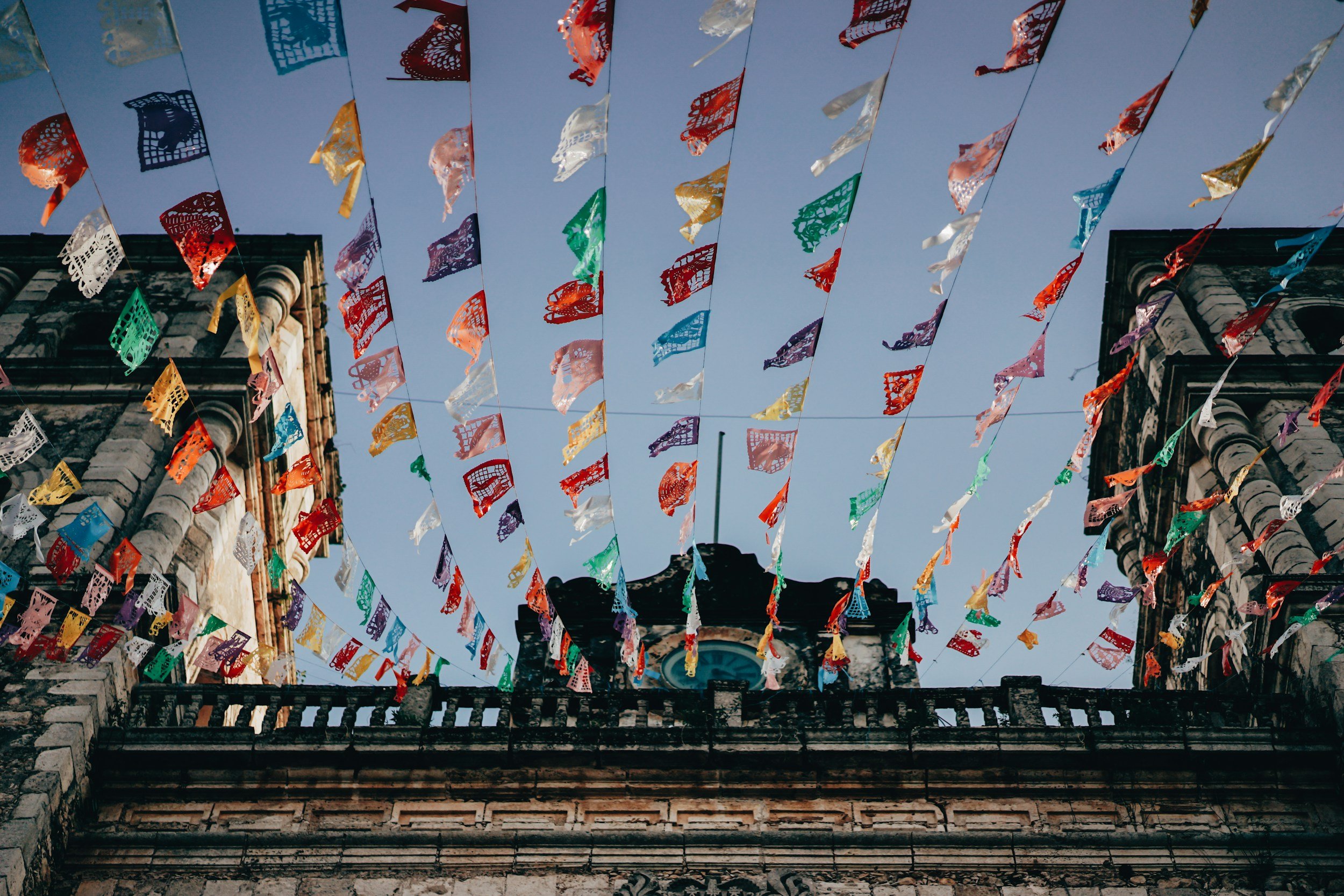Hispanic Heritage Month 2024
It’s September again, which means it’s Hispanic Heritage Month here in the U.S. If you want to read more about the observance and resources I’ve recommended in years past, check out the past two years’ reflections here and here. There’s enough there to do several deep dives on how we can celebrate the image of God in Latine people.
This year, I’ve been thinking a lot about how I am the only Latina woman at Immanuel. We have beautiful aspirations of diversity and an expansive community but sometimes, it feels kind of lonely to be the only one to feel the pressure of embodying a culture I only sometimes understand myself. I feel the uneasy privilege of living essentially as a white woman but I also cannot deny the stories, perspectives, cultural values, generational trauma and resilience that have shaped me that are different than many people in the Christian spaces I’ve inhabited.
We read Scripture in Spanish, we occasionally have a Latino pastor share in our services, we have a few books on our bookshelves with Latine authors. However, even as someone who values my Latina heritage, I find difficult to engage histories, stories, sermons, or resources because either they don’t exist, they aren’t centered or they are drowned out by the wealth of resources from predominately white male perspectives.
For example, I recently picked up the book Plant a Seed of Peace by Rebecca Seiling for IMC church library because I was so excited to see an anthology of short biographical stories from the “global” Anabaptist family. I searched the 44 stories for any sign of Latine people. There was a solitary story of Gloria Lizcano from Bogota, Colombia. 1 of 44.
Even in Christian publishing companies that are beginning to prioritize voices of color, the gap is gigantic. For example, at IntervarsityPress, only 29 Latino and Latina authors are highlighted. Out of those, only 9 are women. 44 titles out of a catalog of 1,000. The highlight is amazing as a start, but searching for good resources for this post reminded me that valuing the voices of Latine people is not enough. It requires a concerted effort to observe Hispanic Heritage, to learn untold stories, to listen to Latine people and to choose to be learners over and over again.
With that wordy introduction behind, here are the resources I’m engaging this month. I invite you to check them out with me!
This conversation between Kat Armas and Karen Gonzalez is a must listen. Besides a great introduction to Gonzalez's book Beyond Welcome, it covers myths about immigrants, a perspective on Joseph that blew my mind, and a reflection on ethical storytelling that will challenge me forever.
My nonfiction read for this month is Si, Se Puede: The Latino Heroes Who Changed the United States by Julio Anta (Illustrated by Yasmin Florez Montanez). I was able to find it at the downtown library in the adult graphic novel section. I am so excited to learn about folks I have heard of and whom I want to include in my understanding of what it means to be an American.
My poetry/young adult read for this month is Red Hot Salsa: Bilingual Poems on Being Young and Latino in the United States. If the big C church is going to have credibility in the U.S., we would do well to listen to the voices of young people of color who are eloquently describing experiences that might be far different from our own.
My new Instagram follow this month is @latinaslovingjesus.
I’ll admit that I have been jaded lately about the church as an institution and dispassionate about faith in the midst of the chaos of reality. The conversations, even the comments from this account have given me life, reminding me that there are vibrant women who are searching for ways to creatively interact with culture and church spaces.
Finally, I am planning on listening to this conversation on The Bible for Normal People podcast. I’m interested for two reasons. One, I can’t believe wild it is to have someone thinking not just about being Latino in the church but specifically about being Latino in the Mennonite church.
Second, Hinojosa is coming in Eastern Mennonite Seminary in November! In light of the 500th anniversary of Anabaptism, Dr. Hinojosa will be speaking on Quiet Riots: The Promise of Interethnic Anti-Racism and the Future of Anabaptism. He’ll be coming to Martin Chapel at 7:00 PM on November 7, so mark your calendars now!
How will you and your family celebrate Hispanic Heritage Month this year? Beyond this month, how will you commit to learning from Latine folks in our community, churches, and country? How might our vision of God and God’s kingdom expand as a result?





